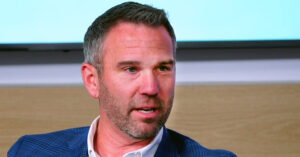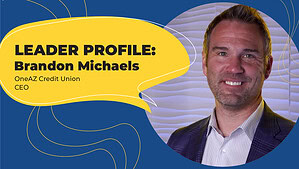To wrap up Women’s History month, we’re back with the Community Collaborative’s seventeenth episode. In this episode, we have more of Arizona’s brightest leaders joining us to engage in conversations around diversity and inclusion in the local community and workforce. Join us as we come together to continue the conversation, shed light on important issues and diverse experiences, and present solutions for a better, brighter, and more equitable future.
In this episode, we tackle important conversations surrounding women in the workforce. At a time where the number of working women is declining, we discuss the need for continued understanding, support, and allyship to help ensure more equity in the workplace.
Ashley LaRae, Founder StyePHX, serves as a special guest host to join Community Collaborative co-host/producer and Black Chamber of Arizona CEO Robin Reed. Together, they lead the discussion, reflect on current issues, and provide insights into actions we can all take to help move the needle toward a more equitable future.
Reed and LaRae are joined by featured guest Angelica Prescod, a financial advisor at Edward Jones. Prescod is not only a leader in the financial world but a woman with high ambition and dedication to equity in the workplace. She offers an inside look at the struggles women face as they strive for success at work.
Additionally, the week includes meaningful conversations with two of our local partners, Banner Health and Arizona Federal Credit Union. These organizations are great examples of what others in the community and beyond can do to be an active part of the solution.
Jackie Hunter, Senior Director of Diversity and Inclusion at Banner Health, leads a discussion on the unique challenges faced by working women and what employers can do to better support them. Rachel Galvez, Marketing Partnerships Manager at Arizona Federal Credit Union, offers her insights and advice regarding the role Employee Resource Groups can play in inspiring meaningful conversations and connections at work.
Don't Miss These Highlights
Robin Reed kicks off the conversation with his concern for data reporting the dropping ambition across women in the workforce, noting how hard women have worked to make the progress we see today. “If we take a year off from ambition with women, it’s going to take a decade to get it back,” he notes (2:15).
Ashley LaRae joins in, echoing Reed’s concerns. She explains the ripple effect of what could ensue as women’s spirits continue to break down, pointing out a more significant issue at play. “The system itself is not meant for [women],” she says. “It was actually created to keep us down” (3:12). She further calls attention to the growing need for awareness and support as women, especially minority women, continue to struggle in the current system.
Angelica Prescod of Edward Jones comes into the conversation to share her experience and insight as the top black female financial advisor in the company’s history. She discusses both the honor and the pressure of that title, noting how successful women often carry “the hope of others” (15:38).
She brings attention to the faults within “the institutionalization of limitations” faced by women in the financial industry and the workforce in general (16:32). By connecting such limitations to financial literacy issues, she calls for the need to continue having those conversations and providing resources to spread knowledge to help women progress.
She takes it further, explaining how financial literacy is “the truest conversation of equity” (17:09). Therefore, she discusses the importance of her role in “creating a space where equality is actually possible.” As a black woman in the industry, Prescod shares the issues of racism and biases she faces regularly. Rather than letting those moments beat her down, she uses them as educational opportunities to help move the needle forward (17:44).
“Habits are habits,” she says, but that doesn’t mean that change isn’t possible (20:05). LaRae connects Prescod’s experiences to why representation and exposure are so important (21:35). Successful women in leadership positions not only exemplify what is possible for other women but for opposers as well. As LaRae declares, these successes are needed to “shake up the system.”
We need to not only recognize that issues such as racism and misogyny exist, but have the conversation and take the actions to progress beyond them. While opportunities are more expensive than ever before, “Just because we have moved further up does not mean the challenge is over” (22:12).
It’s not just about women, either. Prescod brings up the need for male advocates on these issues as well (23:48). We need both men and women to share their voices and be in alignment on the present issues and actions to take moving forward. That includes women supporting women rather than being in opposition to one another as they climb the ladder of success (24:45). We all need to come together to achieve the change we are after.
The Power Of Belonging
Jackie Hunter joins us from Banner Health to share her insights regarding what these issues look like in the healthcare space. Specifically, she highlights the importance of having open conversations around maternal health and the disparities that come along with it, especially for women of color (4:49). Additionally, women’s equity must include the LGTBQ and trans population.
She also calls attention to the wage gap between working men and women, mentioning the many facets to address when referring to women’s equity (5:42). She details the differences in wages per dollar between the white male and women, showcasing the increased disparities when talking about women of racial or ethnic minorities. Therefore, we need to continue the conversation and education regarding these inequities.
There is a certain pressure that follows women as they work to make advancements in the workplace. While this isn’t an issue that is commonly spoken about, Hunter explains the pressure of carrying a sense of hope for others (6:42). “It’s important you have a circle or tribe [where] you can talk about [these pressures]” (7:27). These conversations are imperative to avoiding burnout and decreasing ambition.
Hunter addresses the need for employers to be respectful of unique circumstances faced by many women, like motherhood. She references solutions employees can consider, like flexible scheduling, that can help them remain mindful of these challenges and the impact they have on women (8:12).
LaRae joins the conversation with a call for the realignment of our efforts and energy. “As we continue to align towards who we truly need to be as a system we must come together to determine what’s going to work for [women in the workforce],” she says (9:50). Alignment and awareness are essential components to the change, healing, and well-being women need (10:08).
Additionally, Reed calls for an added level of understanding of what women often have to endure, especially during the additional challenges faced during the pandemic (10:28).
Actions We Can All Take
Arizona Federal Credit Union’s Rachel Galvez joins us as our Rally Point Partner to highlight the role Employee Resource Groups can play in encouraging honest conversations, building genuine connections and actively advocating for employees and the community in general (11:32):
- – Encourage employees to assume leadership roles in ERGs as a way to develop professionally while accessing a pipeline of engagement with senior-level leaders.
- – Utilize ERGs as a place where all employees can have a voice regarding their experiences and concerns
- – Engage with ERGs to gain insights regarding how to better approach internal and external conversations surrounding relevant issues and initiatives.
- – Build a sense of community through ERGs to help bring the workforce together in an organic and meaningful way.
- – Allow ERGs to serve as a place where all employees, regardless of their level of experience, can come together and feel recognized, understood, and appreciated.
- – Create opportunities for community engagement and action through these groups.
We hope this conversation with our local leaders serves as yet another reminder of the role we all play in creating change. There is a need to bring diverse voices to the table to raise awareness and change the course of the future for the better.
When we address issues of race-fueled hate, like the recent acts of violence against members of the Asian-American and Pacific Islander community, or gender-related inequalities, we know there is a long road ahead. When we commit to educating ourselves, promote tolerance, and elevate our voices, we create awareness for the local diversity and inclusion efforts and inspire others to join the progress.
About The Community Collaborative
Community and business leaders and individuals who want to educate themselves on diversity issues will find the series informative and educational. And anyone who wishes to get involved will have ready access to resources featured in each program.
The video series may be streamed for free through the STN app. Viewers may subscribe through STN’s website or by downloading the STN app on the App Store or Google Play.
Each program in the series will provide details on how to get involved in featured activities and initiatives. To be featured in “The Community Collaborative” series or other STN programming, contact us at 480.967.7088.
Every day, there are leaders on the front lines of the fight to improve life in our community. STN provides the platform to tell their and their communities’ stories with video series on leadership philosophies and active efforts to make positive change in our region.





